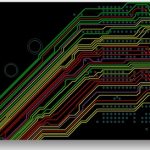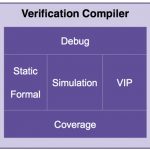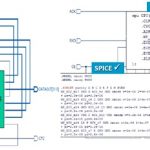At DVCon today I talked to Sanjiv Kaul, the CEO of Calypto. Just as a reminder, Calypto have 3 products, SLEC (sequential logical equivalence checking, also called sequential formal verification), PowerPro (sequential RTL level power reduction) and Catapult High Level Synthesis (that they took over from Mentor in 2011 in a complicated… Read More
Electronic Design Automation
Automating PCB Timing Closure, Saving Up to 67%
The benefits of using EDA software is that it can automate a manual process, like PCB timing closure, saving you both time and engineering effort. This point was demonstrated today as Cadenceadded new timing-closure automation to their Allegroproduct family, calling it Allegro TimingVision. On Tuesday I spoke with Hemant Shah… Read More
What I Didn’t Know about Electronic Design Automation
I started using internal EDA tools at Intel beginning in 1978 and have worked in the commercial EDA industry since 1986, so it was a delight to read a chapter about EDA in Nenni and McLellan’s newest book: Fabless – The Transformation of the Semiconductor Industry. Starting in the 1970’s the authors talk about… Read More
Dr. Walden Rhines Vision on Semiconductor & India
Last month India Electronics & Semiconductor Association (IESA) held its Vision Summit at Bangalore in which luminaries from across the semiconductor and electronics industry presented their views about the future of this industry and India’s progress. Dr. Walden C. Rhines, Chairman and CEO of Mentor Graphicspresented… Read More
Synopsys Announces Verification Compiler
Integration is often an underrated attribute of good tools, compared to raw performance and technology. But these days integration is differentiation (try telling that to your calculus teacher). Today at DVCon Synopsys announced Verification Compiler which integrates pretty much all of Synopsys’s verification technologies… Read More
Does Multiprotocol-PHY IP really boost TTM?
I have often written in Semiwiki about high speed PHY IP supporting Interface protocols (see for example this blog), the SoC cornerstone, almost as crucial as CPU, GPU or SDRAM Memory Controller. When you architect a SoC, you first select CPU(s) and/or GPU(s) to support the system basic functionality (Processor for Mobile application,… Read More
Effect of Inductance on Interconnect
In previous design generations interconnect could safely be modeled by extraction using just R and C values. Parasitics in interconnect are important because they can affect the operating frequency or phase error in circuits like VCO’s. The need to model parasitics properly in wires is just as applicable in PA’s, LNA’s and for… Read More
Locked on FPGA design brand recognition
Back in the days where computing was dominated by a few big (and now mostly dearly departed) names, there was a saying: “Nobody ever got fired for buying IBM.” The relative safety of immediate brand recognition, especially among non-technical upper management, dissuaded many users from recommending or even seeking out other … Read More
Synopsys’s Next Generation Emulator, ZeBu Server-3
Since Synopsys acquired Eve over a year ago, they haven’t announced anything new in the ZeBu product line. Emulators are not like software where you expect incremental releases a couple of times per year, each new “release” is a complete re-design using new hardware fabric in a new process technology. Earlier… Read More
Mixed-Signal SoC Debugging & IP Integration Made Easy
A semiconductor SoC design can have multiple components at different levels of abstractions from different sources and in different languages. While designing an SoC, IPs at different levels have to be integrated without losing the overall design goals. Of course, quality of an IP inside and outside of an SoC must be tested thoroughly.… Read More









Should the US Government Invest in Intel?